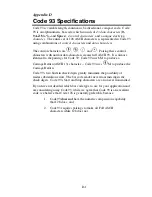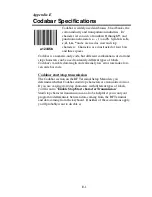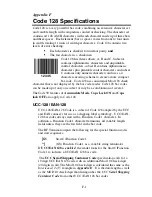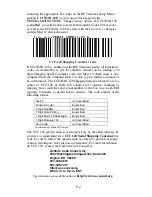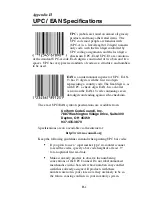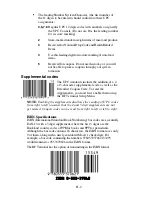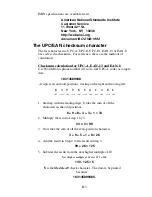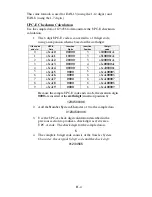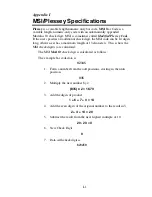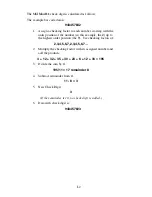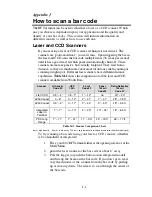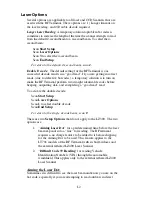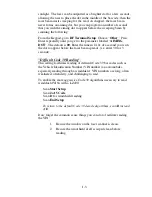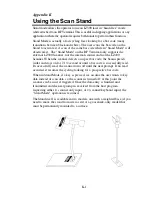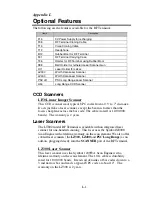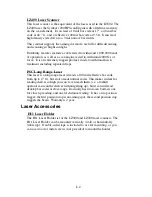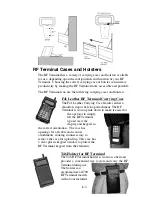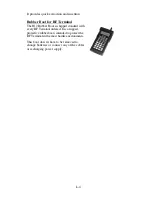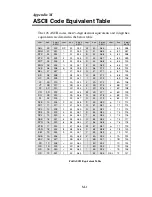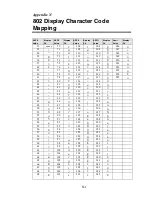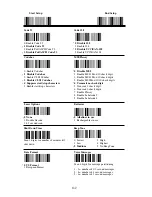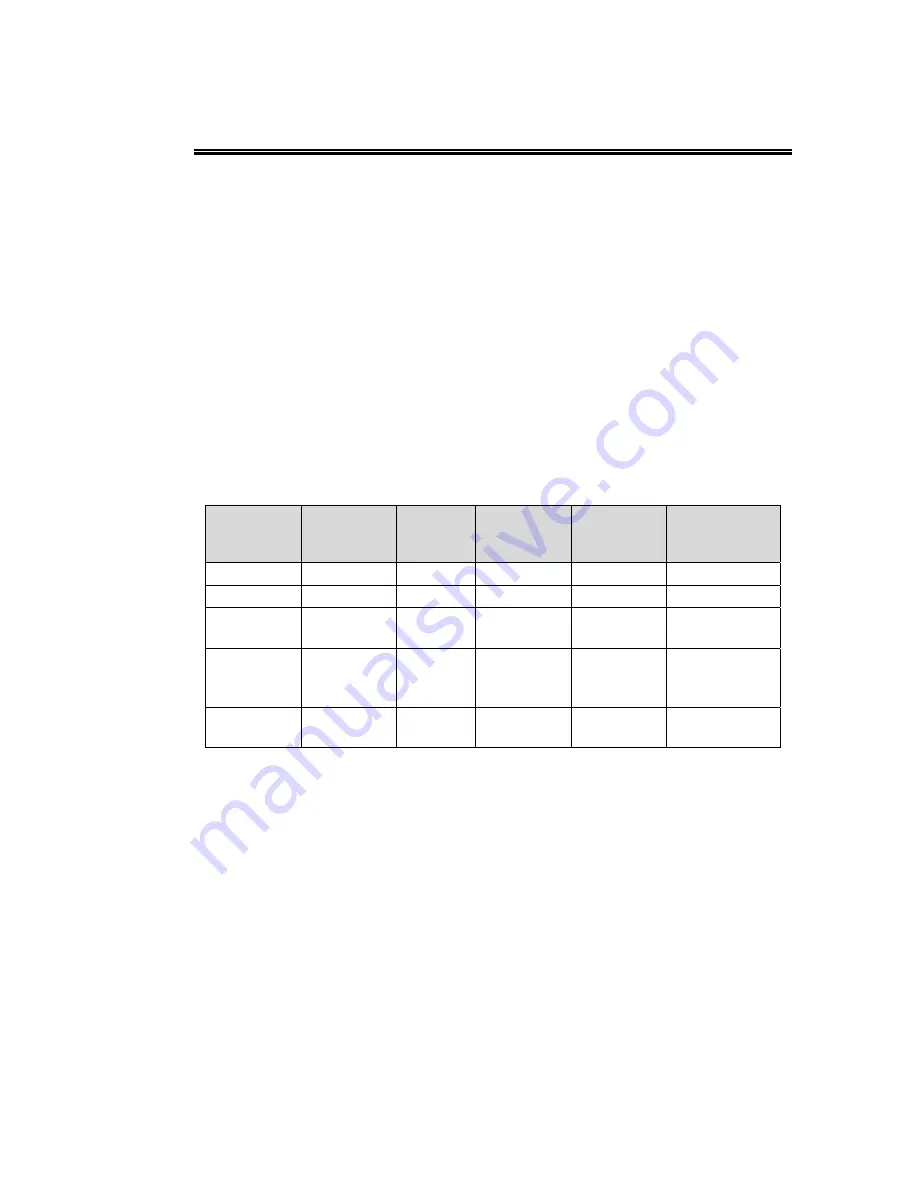
J-1
Appendix J
How to scan a bar code
The RF Terminal can be used with either a laser or a CCD scanner. Which
one you choose is dependent upon your application and the quality and
density of your bar codes. This section will include information on
different scanners as well as how to use each one.
Laser and CCD Scanners
If you are using a laser or CCD scanner, technique is not critical. The
scanners are “point-and-shoot”; you can’t miss. Upon triggering the beam,
the laser and CCD scans the bar code multiple times (36 scans per second)
until it has a good read, at which point it automatically shuts off. These
scanners are more expensive, but virtually foolproof. They read from a
distance, so they are much more convenient for distance shelf scanning or
scanning in tight spots. Different laser scanners have different distance
capabilities.
Table M-1 shows the comparison of all the laser and CCD
scanners available from Worth Data.
Table M-1. Scanner Comparison Chart
6 mil = high density 40 mil = low density 100 mil = very low density (with paper and retro-reflective label stock)
To try scanning a bar code using your laser or CCD scanner, (whether
it be a handheld or integrated)
1. Have your 802 RF Terminal either at the opening screen or at the
Mode Menu.
2. point the laser scanner at the bar code at about 6” away.
3. Pull the trigger (or push the button on an integrated model)
and line up the beam on the bar code. If you don’t get a read,
vary the distance of the scanner from the bar code by pulling
up or moving down. The idea is to scan through the center of
the bar code.
Scanner
Hi Density
Code 39
UPC
100%
40 mil
Code 39
Paper
100 mil
Code39
Retro-Reflective
100 mil
Code 39
LI50 CCD
0.5” – 4”
0.5 - 7”
1” – 12”
na
20” – 40”
LZ300 Laser
0 – 6”
0 – 12”
2” – 41”
7” – 41”
28” – 7.5 ft.
LZ400 Laser
0.5” – 9”
0 – 17”
3” – 44”
9” – 50”
18” – 9.5 ft.
Integrated
Laser in
Terminal
1'" – 7"
0 – 10"
4" – 29"
10" – 32"
18" – 6.5 ft.
PSC Long
Range
7” – 11”
7” - 31”
11” – 9 ft.
24” – 15 ft.
48” – 17 ft.

